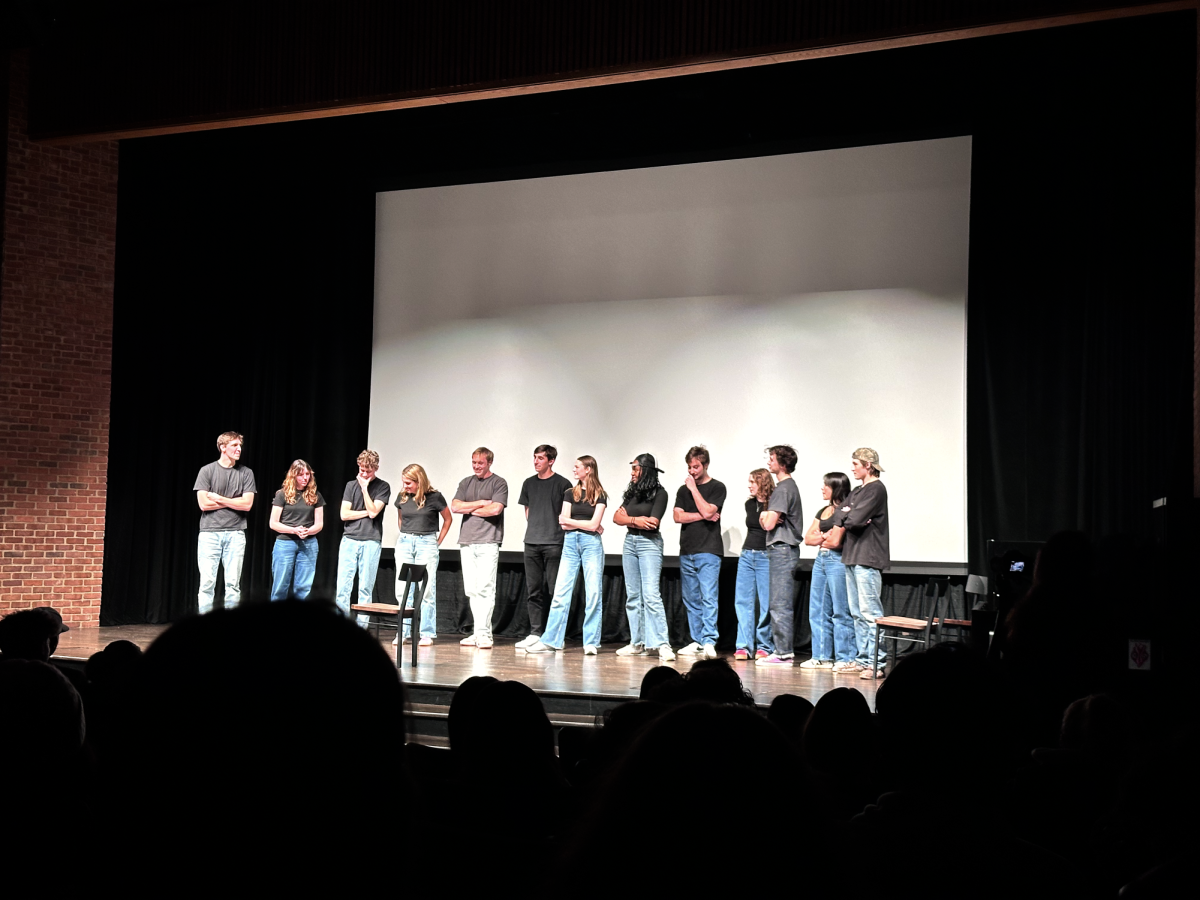When I was invited to an early screening of “The Lost City,” I was excited—not to actually watch the movie, but to write a devastating review of it.
The trailer suggested the film would check every box on the list of requirements for a brainless big-budget action comedy. Conventionally attractive female lead whose character works in an academic field? Sandra Bullock is a novelist, check. Hot himbo in the main supporting role? Channing Tatum is her cover model, check. A silly, convoluted adventure story that would fall apart if you so much as looked at it? Check, check, and check. I was totally geared up for a film I reasonably expected to be the next installment in the “Red Notice” cinematic dumpsterverse.

You can imagine my disappointment (astonishment? delight?) when “The Lost City” turned out to be—against all odds—a good movie. Though the general outline of the film is as formulaic as they come, Bullock and Tatum perform with unexpectedly natural chemistry, and certain scenes unusual to the action-comedy genre inject enough shock factor to keep us guessing about the plot. A moral message that doubles as a meta moment about storytelling provides the cherry on top of a surprisingly sweet film, one I expected to be just as tired as the tropes in its script. Kudos to directors Aaron and Adam Nee for proving me wrong.
The plot of “The Lost City” reads like a cliché-laden fever dream: Loretta Sage (Bullock), a pseudo-Stephanie Meyer who’s still processing the traumatic death of her husband, is kidnapped by an emasculated villain who seems pulled directly from a bad RPG.
None other than Daniel Radcliffe takes up this mantle, with the same brand of yearbook-photo smiles and overacted lines that made me hate Jake Gyllenhaal’s Mysterio. He believes the fictional treasure in Loretta’s latest trashy romance novel might actually exist, making her the key to finding it, and Alan Caprison (Tatum)—the hunky cover model—sets out to save her. The two predictably get lost in the jungle, with no phone, map or Dwayne the Rock Johnson to find their way off of an island that looks suspiciously like Wuhu Island. In omnia paratus, am I right?
Naturally, this kind of all-in story necessitates some forced expository dialogue to move things along, but the writers help the medicine go down with a spoonful of sugar: the lovely Da’Vine Joy Randolph and Patti Harrison, who play Loretta’s publicist and social media manager. Though the duo don’t get very many lines, Harrison’s comedy experience voice acting on shows like “Big Mouth” and “Bob’s Burgers” translates well to live action, and her and Randolph’s abrupt line deliveries are some of the best.
Brad Pitt is also there for some reason, playing a character that’s basically Chris Hemsworth if he were 60 years old and into meditation, but he serves a different purpose: subversion of expectations, which—kinda in the definition of the term, I know—I did not see coming. The familiar, family-friendly adventure plot of this kind of movie is thrown out the window when Pitt’s character dies gruesomely in the first act, and he’s not the only one.
Random, surprising minor character deaths are interspersed semi-frequently throughout what would otherwise be a dangerously conventional script, and in a weird way, these bombshells make the movie. They seem like the kind of production choice that might have been debated on the cutting room floor, but they give the movie a curious magnetism that kept my eyes on the screen, even after the shock factor should’ve worn out its welcome.
These minor victories would be nothing if not for Bullock and Tatum’s great on-screen chemistry, despite the safety of the hot guy + strong actress formula. Much of their dialogue, however, does come from the same banal place as this trope, such as Alan’s early revelation that Loretta hasn’t yet moved on from her husband’s death and is “scared of opening herself up again.” This line comes in the first ten minutes … and we get it again later. L (for lost city).
But these moments in which the writing is as bad as the studio lighting are refreshingly few and far between, and Tatum continually steals the spotlight as Alan. I remember thinking to myself multiple times: why haven’t I seen him in anything in, like, seven years? He riffs off of Bullock’s holier-than-thou, struggling author vibes in classic himbo fashion, especially when he doubts the practicality of her novel-writing “research” as actual survival advice. Writers always talk about the weird research they do for their craft, and it was fun to see this spin on it, as well as Alan’s appropriate apprehension.
Fittingly, Tatum is also the one to deliver the short monologue with the film’s central message, which, though largely unrelated to the actual plot, accomplishes its goal wonderfully. During one of Loretta’s many self-deprecating rants about how her novels are just “schluck,” he calls her out: so many people around the world love her writing and support her work. If it makes them happy, then who is she to look down on them? Let people enjoy things. It’s that simple.
You can see how I felt called out by this as well. I had come in with the predisposition that the movie would be garbage, and the film knew this, anticipated it and made me feel bad about it. Again, this moment of self-awareness didn’t feel 100% earned for Bullock’s character, because she didn’t learn it organically; Tatum’s character just blurted it out. But they got me with it all the same. They really got me.
I’ve neglected to mention thus far that the titular lost city is known as the City of D. In an erotic dime novel, you can imagine why—and Latto’s “Big Energy” playing during the credits confirms any lingering suspicions.
I’d like to propose instead that the D stands for two things: ditzy, but delightful. For an extravagant, big-budget film with a tacky narrative that somehow makes itself into a lesson about letting people enjoy things, that’s quite appropriate. And as Bullock’s character might say in one of her many groan-worthy moments, maybe this golden nugget of wisdom is the greatest treasure of all.
#shawnmendes.






